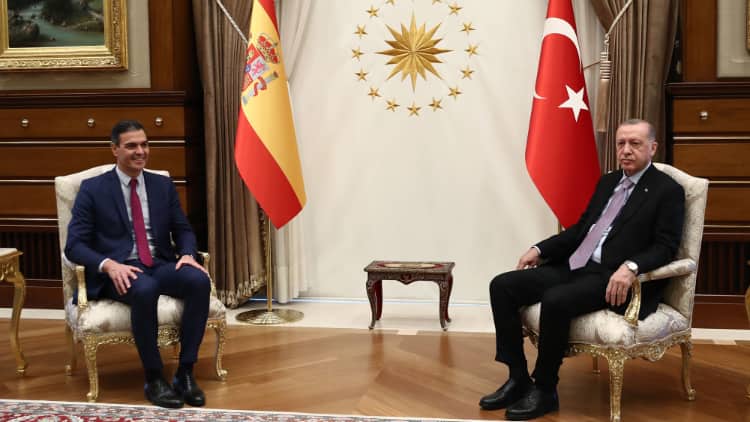Luis Ayllón
The High Level Meeting that Spain held last Wednesday with Turkey has provoked great unease in the Greek government, especially because of the announcements of agreements on defence matters, underlined by Recep Tayip Erdogan during the joint press conference with Pedro Sánchez.
The anger of the Greeks was expressed last Friday, as The Diplomat learned, by summoning the Spanish ambassador in Athens, Enrique Viguera, to the Foreign Ministry to ask for clarification of the summit.
The Greek media have echoed the Greek government’s unease in unfriendly terms with Spain, stressing that its attitude was not what was expected from a country considered a friend and partner in the European Union, which seems to be closer to Turkey than to Greece, at a time when these two neighbouring countries are at loggerheads over the dispute over gas fields in the Eastern Mediterranean and the traditional Cypriot issue, among other things.
Greek government spokesman Yannis Economou said Greece would “closely monitor developments” and questioned Spain’s decision to hold a summit with Turkey. “EU member states are bound by the decisions of the European Council regarding Turkey’s delinquent behaviour and violations of international law,” he said.
The main issue of concern for the Greeks relates to defence cooperation between Spain and Turkey, which, in the agreements signed at the summit, are listed in several points. Moreover, at the joint press conference between the Spanish Prime Minister and the Turkish President, the latter made a point of announcing that his government wants to acquire a second aircraft carrier and a series of submarines for its navy in collaboration with the Spanish company Navantia, which is already helping the Turks in the construction of a smaller aircraft carrier.
After summoning the Spanish ambassador, Greek Foreign Minister Nikos Dendias spoke by telephone with his Spanish counterpart, José Manuel Albares, and conveyed his concerns about the bilateral summit.
Dendias himself, on his Twitter account, noted that “Albares gave clarifications and suggested an immediate visit to Athens for full clarification on the relevant issues”.
Diplomatic sources told The Diplomat that the two ministries are in the process of finalising the dates of the visit, which will in any case take place in mid-December.
The crisis with Athens may be addressed before then by the Secretary of State for the European Union, Juan González-Barba, and the Greek Alternate Minister for Foreign Affairs, Meltiadis Varvitsiotis. Both will be in Brussels today at the General Affairs Council, but they will meet again in Seville next Friday and will have the opportunity to discuss the situation.
The crisis with Greece has been used by the PP to criticise the foreign policy of Pedro Sánchez’s government, and its leader, Pablo Casado, posted on his Twitter account: “After Sánchez’s trip to Turkey, we in the PP reiterate our defence of the territorial integrity of Greece and Cyprus as members of the European Union and respect for human rights and the EU security and immigration policy for our foreign relations”.
And last Friday, during Albares’ appearance before the Joint Committee on the EU in the Congress of Deputies, the spokesman for the Popular Group, Rubén Moreno, questioned the appropriateness of the moment chosen to hold the 7th High Level Meeting with Turkey.
In his reply to the deputy, the minister stated that Spain’s “solidarity” with all EU Member States, including Greece and also Cyprus, “is beyond doubt”. He added that Turkey is “a first-rate partner” of the EU and should be treated “as such”, given, among other things, its “fundamental role” in matters such as irregular immigration. “That is the spirit in which it has gone”, Albares stressed.







